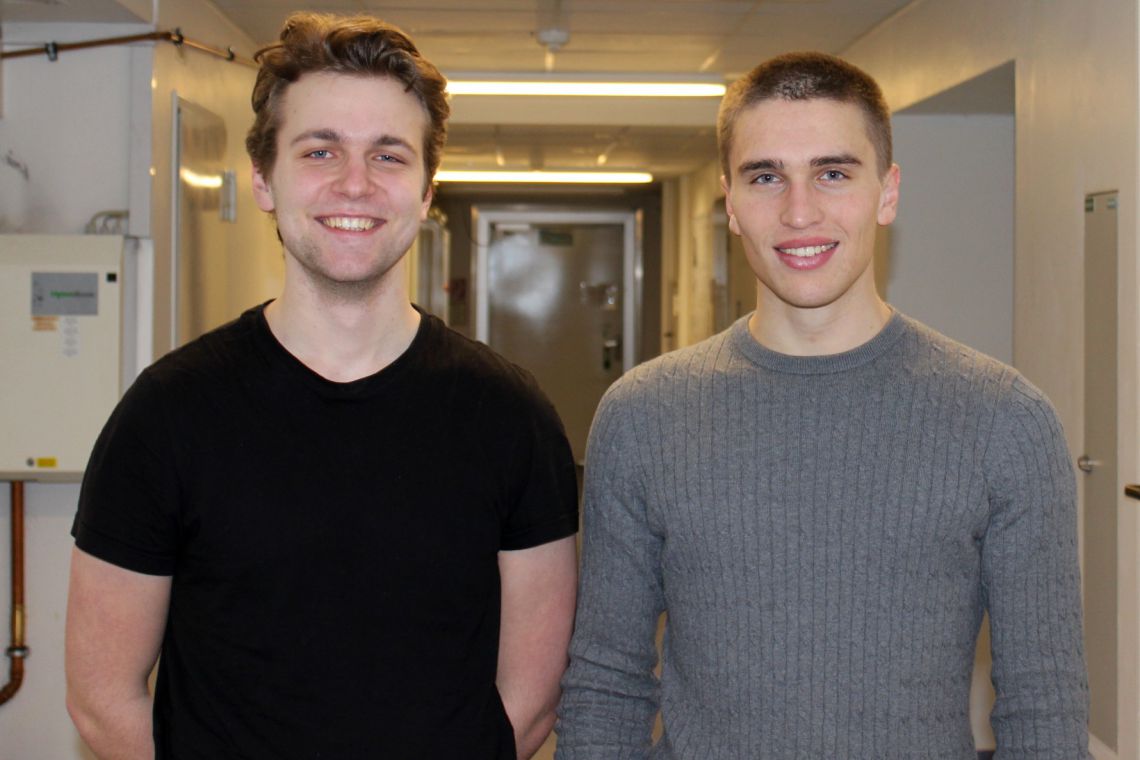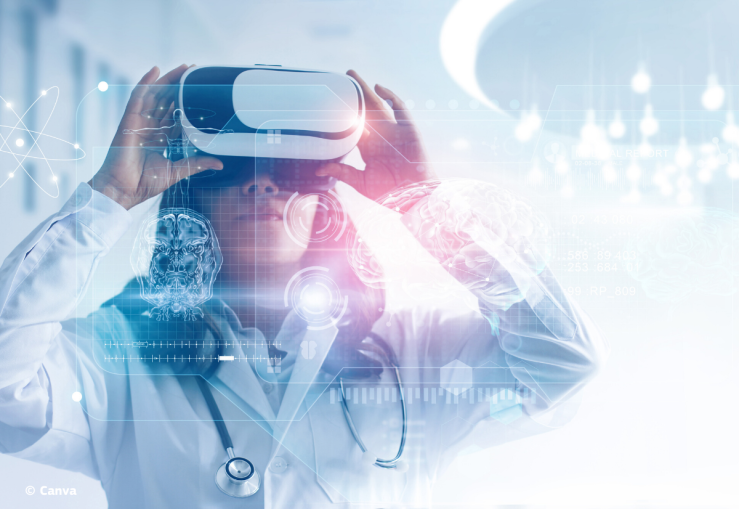The Future and Emerging Technologies programme (FET) allows also young researchers and ambitious students to contribute to some of the most exciting research adventures. In a win-win situation, the fresh knowledge of junior researchers can become an asset for the progress of complex scientific challenges, while the students can experience a multidisciplinary approach to research.

"We would advise anybody to think in an interdisciplinary way and to avoid focusing exclusively on one topic. Many people see the risk of focusing on more than one topic at the same time, but in our experience, this approach comes with high gain."
Jan (20 years old) and Marius (23 years old) are two young medical students from Hamburg, Germany. They are also self-taught programmers, out of a personal passion: in their spare time they like to program apps, games and participate in programming (especially artificial intelligence) competitions.
Over the last year, they put their studies on hold to perform their medical doctor thesis within the FET project socSMCs. They had the opportunity to explore a new approach of doing research, while having the opportunity to cross-fertilize their skills as young medical students and programmers.
How and why did you get involved in the FET project socSMCs?
When we asked our medical lecturers for information about our medical doctor thesis, by a fluke, they were looking for programmers for the FET project socSMCs. They pitched us the idea of sensorimotor contingencies (SMCs), a theory that explains how action and perception complement each other and build the foundation of consciousness. This dependency may have a predominant role in successful social interaction, especially in the phenomenon of synchronisation – like applauses, postures and walks, that can become unintentionally synchronous. These SMCs, in a social context, are referred to as socSMCs.
They explained us how they wanted to investigate the socSMC theory in a fully immersive experiment like in the science fiction movie Ready Player One, including virtual reality and motion tracking. In this experiment, two people were supposed to meet and interact in virtual reality - as if they met in real life - and perform tasks with each other. In a follow-up experiment the same participants interacted either with a human, as in the first experiment, or with an artificial intelligence (without being told which of the options they are given) and finally they had to tell with whom they interacted with, in this follow-up.
We were thrilled by this idea not only because it was the perfect opportunity to combine our medical studies with our programming skills, but because we thought it was a very interesting experiment itself. We always wanted to do something like this but did not have the resources to do so.
As students in Medicine, what impact this experience will have on your future carrier?
In the next decades changes across disciplines will be unprecedented, especially deriving from artificial intelligence, robotics and genetics. This relieves pressure from physicians and nursing staff, giving them more time and thereby enabling them to be in more direct contact with patients to focus on their needs. Diagnostics will become more accurate and beneficial at a lower price. We want to be a creational part of this process as researchers, this is why we hardly believe in becoming physicians at one point, and both the feedback and what we have learned throughout this project encouraged us to go that way. For the near future, thanks to this project and to our experience in virtual reality we got engaged in many interdisciplinary workgroups at our campus, developing medical products and software that other workgroups can use for their studies (e.g. Virtual Reality frameworks). But soon we want to combine our knowledge in medicine and artificial intelligence to improve diagnoses and treatments.
Would you consider participating in more FET projects in the future?
We would love to participate in more FET projects, but for now - even though the funding expired - we are still busy with socSMCs, writing our papers and medical doctor thesis, possibly perform further experiments in this topic, and turning the knowledge gained into possible medical and economical products.
We can also imagine receiving funding for our own projects with FET in the future.
Would you advise other students to participate in a FET research project?
We would advise anybody to join a FET research project. This experience was a decisive one for our future. As young researchers, we got funded equipment we would never have been able to get access to, otherwise. We received acknowledgements and connections with leading researchers not only in medicine, we got invited to multiple places across Europe and we established great relationships with our lecturers , turning the grant we received from the project into a contract at the institute.
Furthermore we would advise anybody to think in an interdisciplinary way and to avoid focusing exclusively on one topic. Many people see the risk of focusing on more than one topic at the same time, but in our experience, this approach comes with high gain. Being at the crossroads of two disciplines makes you come up with original ideas, different conclusions. This approach allows you to link diverse fields, which eventually makes you much more appealing on the job market, especially in times where only the change is certain. It is time to break with the conventional learning approach and research patterns and try out new things with the help of what digitisation has to offer. The world reinvents itself, and FET can help to be a creational part of it.
Background information
FET-Open and FET Proactive are now part of the Enhanced European Innovation Council (EIC) Pilot (specifically the Pathfinder), the new home for deep-tech research and innovation in Horizon 2020, the EU funding programme for research and innovation.
Discover the full interview here: https://ec.europa.eu/digital-single-market/en/news/its-never-too-early-meet-jan-and-marius-young-researchers-involved-fet-project

DISCLAIMER: This information is provided in the interest of knowledge sharing and should not be interpreted as the official view of the European Commission, or any other organisation.

